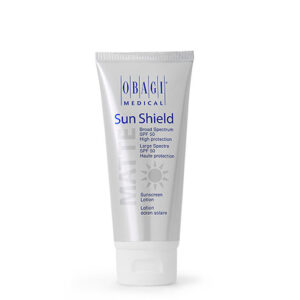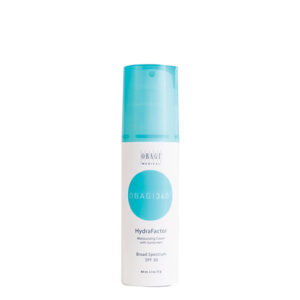
When packing for the beach and summer holidays, sunscreen is always top of the list. We all well know that protecting your skin from the sun is very important. What we do forget, however, is that the sun also has an impact when we least expect it. On a cloudy day, people are more likely to forget to apply SPF and even more so in winter, when the weather is cold and the sun is hidden most days. So, what is the need for sunscreen during these colder months of the year? You might not expect it, but UV radiation is no less harmful or damaging to our skin in winter.
In fact, it might be even more harmful in some cases. Especially during mountain sports, such as skiing or snowboarding, it is extremely important to use SPF. Up to 80% of the UV rays will be reflected on the snow, causing your skin to be exposed to UV radiation and get burned quickly. And don’t let cloudy weather fool you, the UV radiation will still know how to make its way through the clouds. So when should you use SPF? That is a question with a very easy answer: ALWAYS!
What is SPF?
SPF stands for Sun Protection Factor and is a measure of how well a sunscreen will protect your skin from UV rays. UV rays can be differentiated into three different types: UVA (longest wavelength), UVB (medium wavelength), and UVC (shortest wavelength). Experts advise you to use sunscreen with SPF 30 or above, and reapply it every two hours when you’re exposed to the sun.

What are the consequences of not using SPF?
Not using SPF daily, will not only result in sunburn in the short-term, but it will also have damaging long-term consequences on your skin. To show you the importance of using SPF, we will highlight the most common consequences of not using SPF to protect your skin.
1. Sunspots
Almost everybody has some sunspots on their skin, most commonly on their arms, neck, or face. Sunspots are caused by exposure to the sun and are signs of damaged skin. When you skip wearing sunscreen, the skin will be left with hyperpigmentation.
2. Increased wrinkles
If you choose not to wear sunscreen daily, your skin will inevitably become damaged, increasing the rate at which your skin ages. The result? Increased wrinkles, fine lines, crows feet and other signs of ageing. When your skin is damaged by the sun, it loses its elasticity due to damaged collagen and broken connective tissue. By simply applying a daily sunscreen or a moisturiser with strong SPF, you will prevent your skin from ageing prematurely.
3. Painful sunburns
We’ve all been there. You’re enjoying the beaches in summer and forget to apply sunscreen for a couple of hours. The results? Painful sunburns and walking around on the beach with a t-shirt on for the next few days. That’s one way to learn quickly. Sunburns are not only painful, but they’re also very bad and unhealthy for your skin. Burning your skin damages your skin tissue, which is dangerous and can have serious consequences.
4. Skin cancer
When you damage your skin by going into the sun unprotected, this can damage your skin to a degree that you have a higher risk of skin cancer, studies by Skin Cancer Foundation show. By applying a sunscreen or moisturiser with SPF every single day, you can reduce the risk of developing squamous cell carcinoma, the second most common form of cancer, by about 40 percent. Besides this, you can lower your melanoma risk, a dangerous type of skin cancer, by 50 percent, as researched by Skin Cancer Foundation. Sunscreen is definitely worth the investment!

Applying a daily moisturiser with SPF in it takes about 30 seconds of your time every day, but can prevent you from serious issues such as sunspots, sunburns, and skin cancer in the long run. Also in winter, these problems can occur from not protecting your skin from the sun. So, no matter what the weather looks like, keep using SPF!

